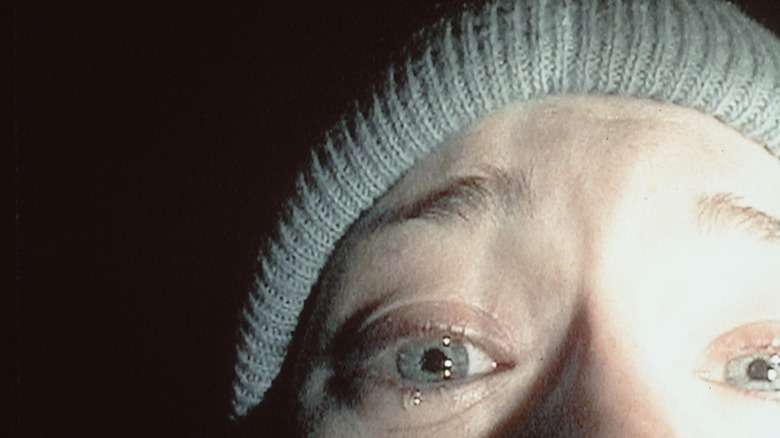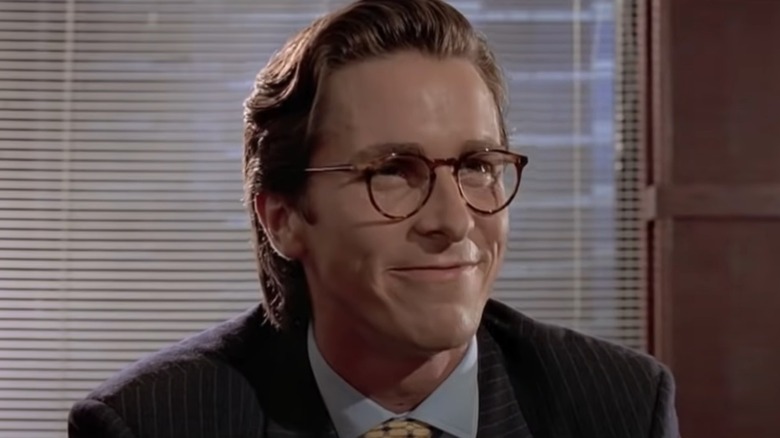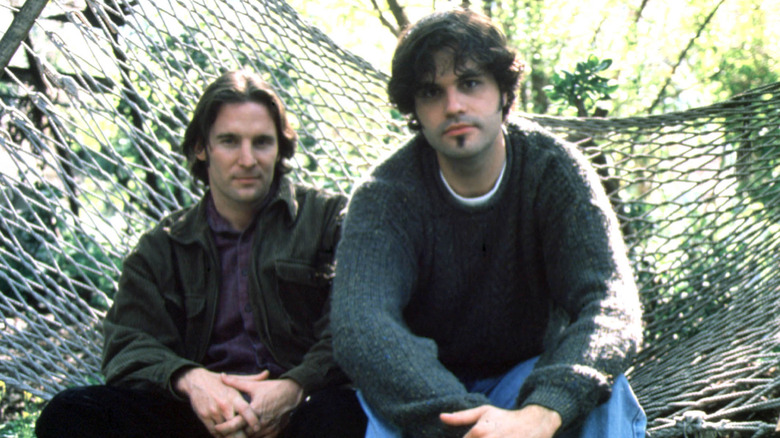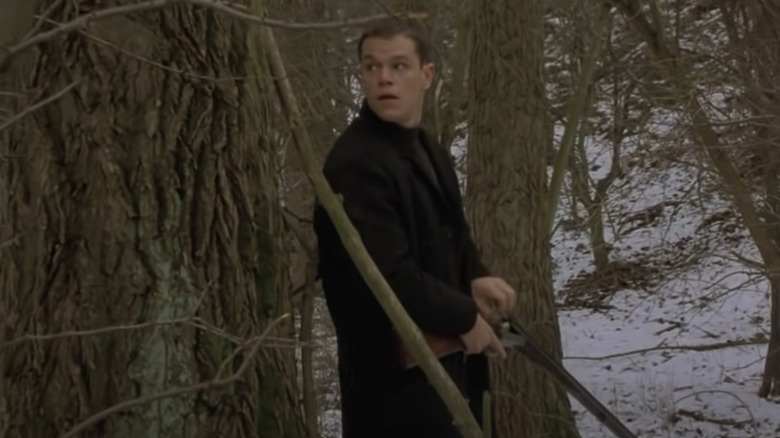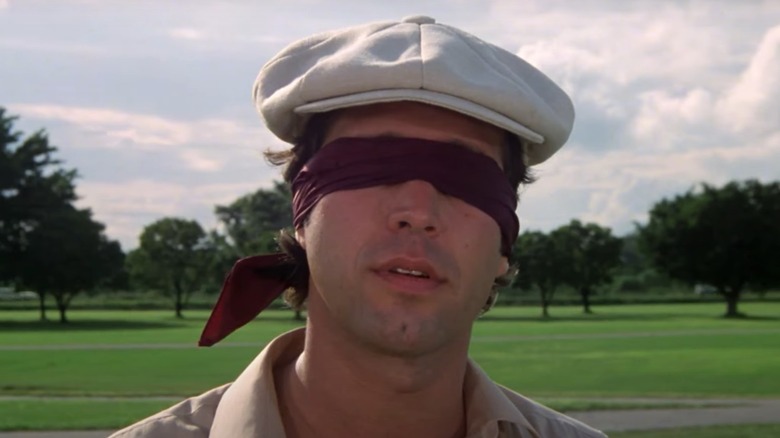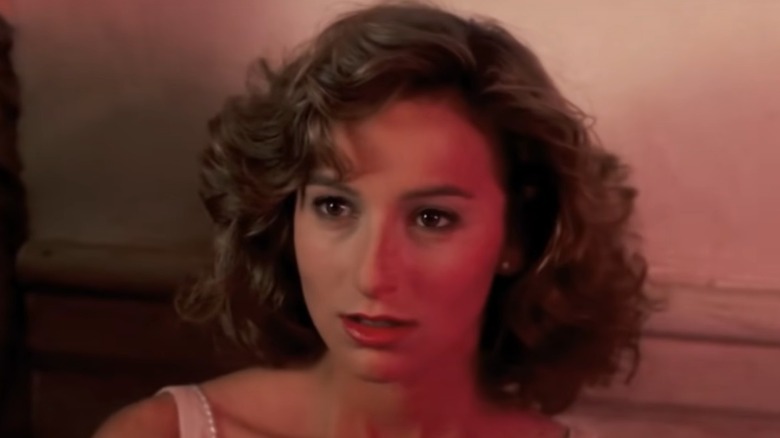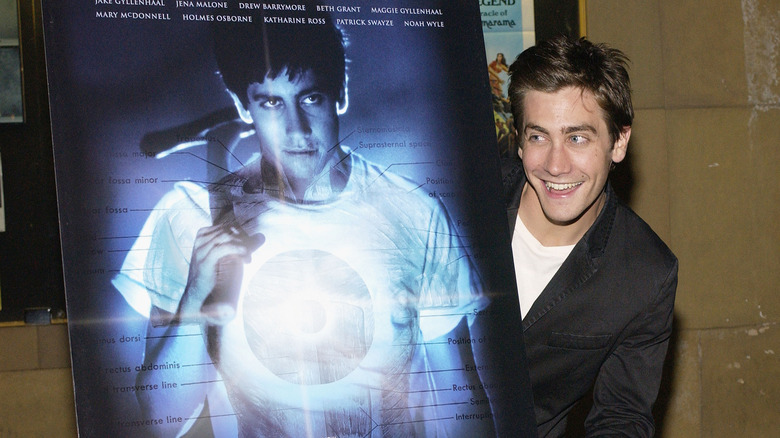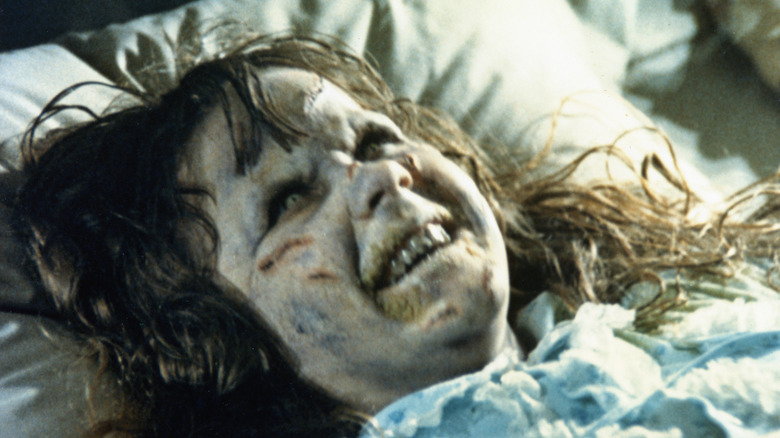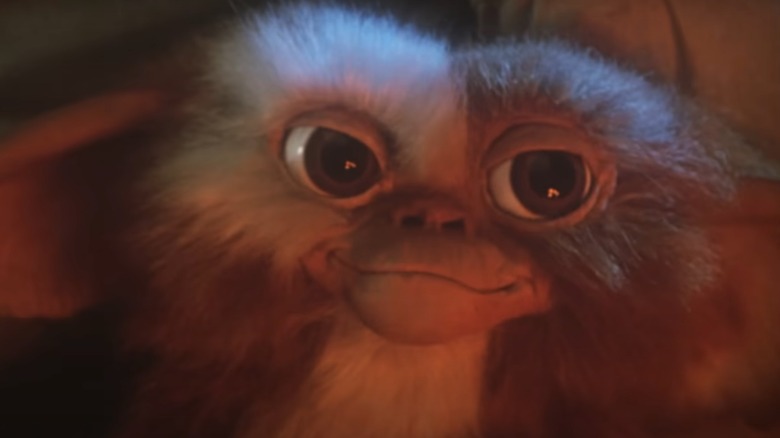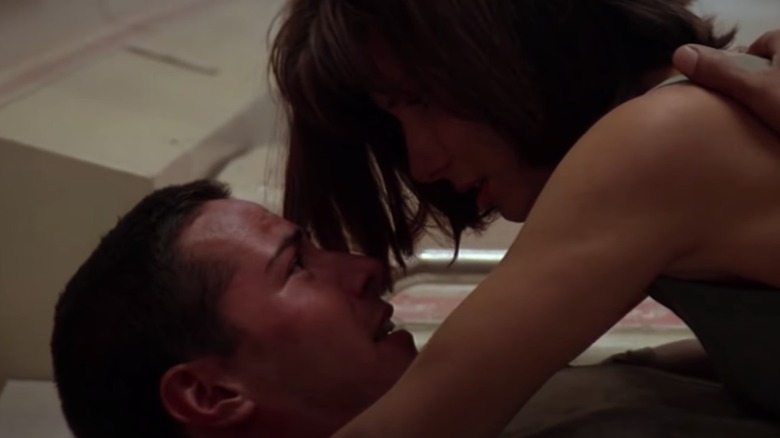These Movies Never Were Supposed To Have A Sequel. Here's Why
Depending on the film, an announcement for a sequel can either be one of the best or worst things the audience could hear. With so many superhero movies and franchises going today, many sequels are planned in advance in order to lay out a storytelling plan (and make as much profit as possible). In most of those cases, it can be very exciting to hear that your favorite movie will be getting a follow-up. But it can be especially exciting when a movie that looks like a non-franchise film gets a surprise sequel after making a big splash at the box office.
For every sequel that was planned from the start, there are several films that were never intended to have a follow-up — but due to unanticipated circumstances, these films' stories were continued with subsequent installments that either improved upon or damaged the legacy of the original. With all that in mind, let's take a look at a number of films that were never supposed to have a sequel — and why that changed.
American Psycho
Horror films and psychological thrillers are goldmines for unnecessary add-ons, and a ton of franchises — like "Halloween" and "Friday the 13th," to name just two — have spawned numerous sequels that don't add much to the original story. In some cases, these sequels end up going direct-to-video, which usually indicates that their quality is pretty low. For example, let's turn to the direct-to-video sequel to "American Psycho," a slasher film starring Christian Bale as serial killer Patrick Bateman.
Released in 2002, "American Psycho 2" stars Mila Kunis as a college student who becomes a murderer during her time studying criminology under the guidance of a former FBI agent (William Shatner). Christian Bale isn't in the film, but Patrick Bateman does appear, played by someone else. The connection to the first film is small, but that's because there was originally no connection at all.
"American Psycho 2" was supposed to be an original story titled "The Girl Who Wouldn't Die," but was glommed onto the "American Psycho" saga during production in a transparent bid to capitalize on the original film's success. Talk about a cheap cash grab.
The Blair Witch Project
"The Blair Witch Project" changed the game for horror when it arrived in the summer of 1999. One of the earliest examples of the modern found-footage genre, the story of three film students getting lost in the woods when investigating the local legend of the Blair Witch was a massive success that spawned a sequel only a year later. But it wasn't originally supposed to come out that quickly.
The original film's distributor, Artisan Entertainment, wanted a sequel immediately after the first film's impressive box office performance. But the production company, Haxan Films, didn't want to rush it. Artisan pushed on regardless, and the film's original directors, Dan Myrick and Eduardo Sanchez, did not return to write or direct the sequel. True crime documentarian Joe Berlinger took the helm, but even he said that he was dissatisfied with the final product when the studio made several changes to what he originally wanted in order to make the film a more traditional horror movie, rather than a commentary on the original film's success.
"Book of Shadows: Blair Witch 2" was the final product, and the film quickly came and went with little praise. Despite this failure, the "Blair Witch" franchise continued on with another installment in 2016, but the magic of the first film has still yet to be replicated.
The Bourne Identity
"The Bourne Identity" kicks off the Bourne franchise, which follows a CIA operative suffering from amnesia and trying to discover his past. While not every film in the series was universally acclaimed, the original trilogy was positively received and each did well at the box office. While "The Bourne Identity" was an adaptation of a bestselling series of novels, that didn't mean that follow-up film "The Bourne Supremacy" was a forgone conclusion.
Matt Damon, the face of the original trilogy and the 2016 film "Jason Bourne," has commented on the fact that "The Bourne Identity" was never made with a franchise in mind. Expectations were minimal, according to Damon, due to a combination of production problems as well as the film opening the same weekend as 2002's "Scooby-Doo." Thankfully, "Bourne" defied expectations and ended up being a big hit — one whose violently kinetic set pieces revolutionized the action genre for years to follow.
Caddyshack
Harold Ramis' "Caddyshack," a comedy about the workers and members of an elite golf club, features an all-star cast that includes Bill Murray and Chevy Chase. After the picture made a sizable amount at the box office and catapulted Rodney Dangerfield to big-screen stardom, studio Warner Bros. wanted a sequel ... and that's where things got complicated.
Production on "Caddyshack II" was a mess right from the start. An initially apathetic Ramis only agreed to the sequel at Dangerfield's request, but several story ideas and rewrites left the star unsatisfied, and he dropped out of the project a few months later. That left Chevy Chase as the only original cast member who agreed to return for the sequel, albeit in a smaller role. The actors who replaced the original cast, as well as their new characters, were the final nails in the coffin for this troubled sequel. With terrible reviews and dismal box office returns, "Caddyshack II" is a follow-up that reaffirms that some movies just weren't meant to have sequels.
Carrie
The original 1976 adaptation of Stephen King's "Carrie" is a horror classic. The story has been remade for film and television over the years, but it also inspired a sequel, titled "The Rage: Carrie II." Set within the same universe as the original film (and featuring the return of original cast member Amy Irving as Sue Snell), the story centers around a young woman named Rachel who has powers similar to Carrie, and uses those powers to exact revenge on the classmates who drove her only friend to suicide.
In reality, "The Rage: Carrie II" was an original story, but the powers that be decided to make the film a sequel to "Carrie" instead and tie in the two films by making Rachel and Carrie related. It didn't help. "The Rage: Carrie II" was panned by critics and completely bombed financially. Sometimes, it's best just to leave well enough alone.
Dirty Dancing
On numerous occasions, studios have tried slapping a familiar name onto any old screenplay in the hopes that name recognition will lead to more money. For example: "Cuba Mine," written by NPR host Peter Segal. Segal's film, which was supposed to be a love story set during the Cuban Revolution, never got made due to issues with the studio he was working with.
However, Segal's script would later serve as the inspiration for what would become "Dirty Dancing: Havana Nights," a prequel to the 1987 smash hit "Dirty Dancing." Segal got a writing credit for the film, but many of his intended political themes were cut out in favor of ... more dancing. Despite a cameo from original "Dirty Dancing" star Patrick Swayze and work by the first film's choreographer, "Dirty Dancing: Havana Nights" failed to recapture the magic of the original. One can only wonder what Segal's "Cuba Mine" would have been like.
Donnie Darko
Clearly, once a studio makes up its mind that it wants a sequel, there isn't much that can stop it from happening — but it definitely doesn't help if the people who were involved in the original film don't return for a follow-up.
Case in point: Writer and director Richard Kelly, the filmmaker behind the 2001 science fiction film "Donnie Darko," starring Jake Gyllenhaal as a teen who starts seeing visions of a man in a rabbit suit after surviving a bizarre accident. The film didn't do well financially on initial release, but was well received by critics and gained a cult following. In 2009, the sequel "S. Darko" was released, centering around Donnie's sister and featuring a similarly strange plot.
According to Kelly, not only did he have no involvement in "S. Darko," he's never seen the film and has no plans to watch it. Probably for the best, since critics and moviegoers didn't like it either. Undaunted, Kelly has promised his own "Darko" follow-up in the future.
The Exorcist
The 1973 blockbuster "The Exorcist" is widely regarded as one of the best horror films ever made. The battle between a priest and a demon possessing a 12-year-old girl named Regan spawned a franchise that includes several sequels, a television series, and a reboot trilogy coming in 2023. William Peter Blatty, the author of the novel the film is based on, produced the first film and wrote the screenplay, winning the Academy Award for Best Adapted Screenplay.
Since "The Exorcist" was one of the biggest films of the 1970s, Warner Bros. definitely wanted a sequel, but neither Blatty nor director William Friedkin were interested. Regardless, production on "Exorcist II: The Heretic" eventually went ahead with a new writer, new producers, new director, and the return of Linda Blair's Regan as a young teenager still dealing with the trauma of the previous film's events. Whereas the first film elicited scares, the sequel drew anger and laughter from critics and moviegoers and was a box office bomb.
Blatty eventually returned for "The Exorcist III," which got better reviews, but was still not as universally acclaimed as the original.
Gremlins
Sequels typically arrive no more than a few years after the films they're following up. The odds of success tend to fall the longer it takes, but sometimes a belated sequel can still be a big hit. That wasn't the case, unfortunately, for "Gremlins II: The New Batch." The sequel to 1984's "Gremlins" showed up in theaters six years after the original, and despite earning positive reviews, it had a dismal box office run.
Interestingly, director Joe Dante didn't want to make a "Gremlins" sequel when Warner Bros. asked him to make one, but he eventually agreed on the condition that he would have full creative control. This resulted in a film that saw the Gremlins invade a New York City skyscraper and grapple with the human characters trying to stop them, with several instances of wildly anarchic meta humor. "The New Batch" didn't catch on during its initial release, but it's acquired a cult following over the years — and there's always the chance we'll see a "Gremlins III" someday.
Speed
It's one thing to not be interested in a sequel — it's another to be forced into one thanks to a contract. This is what happened to Jan de Bont, the director of the Keanu Reeves/Sandra Bullock runaway bus action film "Speed": De Bont felt that "Speed" didn't need to have a sequel, but the surprise success of the first film meant he was contractually obligated to make one anyway.
And thus, "Speed 2: Cruise Control" was born. Taking place on a boat rather than a bus, this sequel saw original star Sandra Bullock returning, but her co-star Keanu Reeves being replaced by Jason Patric. Even with the always-entertaining Willem Dafoe playing the main villain, critics and audiences didn't care for the film — it was a financial failure, with twice the budget but less than half of the box office returns from the first film. Nowadays, "Speed 2: Cruise Control" is only talked about when listing the worst sequels ever made.
